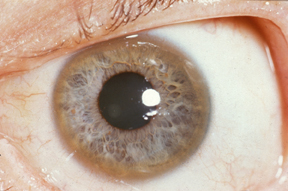Copper toxicity
Editor-In-Chief: Prab R Tumpati, MD
Obesity, Sleep & Internal medicine
Founder, WikiMD Wellnesspedia &
W8MD medical weight loss NYC and sleep center NYC
| Copper toxicity | |
|---|---|
| Synonyms | N/A |
| Pronounce | N/A |
| Specialty | N/A |
| Symptoms | Abdominal pain, nausea, vomiting, diarrhea, jaundice, neurological symptoms |
| Complications | Liver failure, kidney damage, neurological damage |
| Onset | Acute or chronic |
| Duration | Variable, depending on exposure |
| Types | N/A |
| Causes | Excessive copper intake, Wilson's disease, copper IUD |
| Risks | Occupational exposure, genetic predisposition |
| Diagnosis | Blood test, urine test, liver biopsy |
| Differential diagnosis | Wilson's disease, hemochromatosis, lead poisoning |
| Prevention | Avoidance of excessive copper exposure, monitoring in at-risk individuals |
| Treatment | Chelation therapy, zinc supplementation, dietary modification |
| Medication | N/A |
| Prognosis | Variable, depending on severity and treatment |
| Frequency | Rare |
| Deaths | N/A |
Copper toxicity is a type of metal toxicity caused by an excess of copper in the body. Copper is a necessary trace element to all species, including humans. However, when copper is present in large amounts, it can cause a variety of health problems.
Causes[edit | edit source]
Copper toxicity can occur from consuming too much copper from dietary sources or from drinking water that is contaminated with copper. It can also occur from long-term exposure to copper dust or fumes, or from the use of copper-containing intrauterine devices.
Symptoms[edit | edit source]
The symptoms of copper toxicity can vary depending on the amount of copper that has been consumed and the length of time the person has been exposed to the copper. Symptoms can range from mild gastrointestinal discomfort to severe neurological symptoms. Some of the most common symptoms include:
In severe cases, copper toxicity can lead to liver damage, kidney failure, and death.
Treatment[edit | edit source]
Treatment for copper toxicity typically involves removing the source of the copper and providing supportive care. In some cases, medication may be used to help remove the copper from the body. This is known as chelation therapy.
Prevention[edit | edit source]
Preventing copper toxicity involves avoiding excessive intake of copper and ensuring that drinking water is not contaminated with copper. Regular testing of water sources can help to identify any potential contamination.
See also[edit | edit source]
References[edit | edit source]
Transform your life with W8MD's budget GLP1 injections from $125
W8MD offers a medical weight loss program NYC and a clinic to lose weight in Philadelphia. Our W8MD's physician supervised medical weight loss centers in NYC provides expert medical guidance, and offers telemedicine options for convenience.
Why choose W8MD?
- Comprehensive care with FDA-approved weight loss medications including:
- loss injections in NYC both generic and brand names:
- weight loss medications including Phentermine, Qsymia, Diethylpropion etc.
- Accept most insurances for visits or discounted self pay cost.
- Generic weight loss injections starting from just $125.00 for the starting dose
- In person weight loss NYC and telemedicine medical weight loss options in New York city available
- Budget GLP1 weight loss injections in NYC starting from $125.00 biweekly with insurance!
Book Your Appointment
Start your NYC weight loss journey today at our NYC medical weight loss, and Philadelphia medical weight loss Call (718)946-5500 for NY and 215 676 2334 for PA
Search WikiMD
Ad.Tired of being Overweight? Try W8MD's NYC physician weight loss.
Semaglutide (Ozempic / Wegovy and Tirzepatide (Mounjaro / Zepbound) available. Call 718 946 5500.
Advertise on WikiMD
|
WikiMD's Wellness Encyclopedia |
| Let Food Be Thy Medicine Medicine Thy Food - Hippocrates |
Translate this page: - East Asian
中文,
日本,
한국어,
South Asian
हिन्दी,
தமிழ்,
తెలుగు,
Urdu,
ಕನ್ನಡ,
Southeast Asian
Indonesian,
Vietnamese,
Thai,
မြန်မာဘာသာ,
বাংলা
European
español,
Deutsch,
français,
Greek,
português do Brasil,
polski,
română,
русский,
Nederlands,
norsk,
svenska,
suomi,
Italian
Middle Eastern & African
عربى,
Turkish,
Persian,
Hebrew,
Afrikaans,
isiZulu,
Kiswahili,
Other
Bulgarian,
Hungarian,
Czech,
Swedish,
മലയാളം,
मराठी,
ਪੰਜਾਬੀ,
ગુજરાતી,
Portuguese,
Ukrainian
Medical Disclaimer: WikiMD is not a substitute for professional medical advice. The information on WikiMD is provided as an information resource only, may be incorrect, outdated or misleading, and is not to be used or relied on for any diagnostic or treatment purposes. Please consult your health care provider before making any healthcare decisions or for guidance about a specific medical condition. WikiMD expressly disclaims responsibility, and shall have no liability, for any damages, loss, injury, or liability whatsoever suffered as a result of your reliance on the information contained in this site. By visiting this site you agree to the foregoing terms and conditions, which may from time to time be changed or supplemented by WikiMD. If you do not agree to the foregoing terms and conditions, you should not enter or use this site. See full disclaimer.
Credits:Most images are courtesy of Wikimedia commons, and templates, categories Wikipedia, licensed under CC BY SA or similar.
Contributors: Kondreddy Naveen, Prab R. Tumpati, MD






